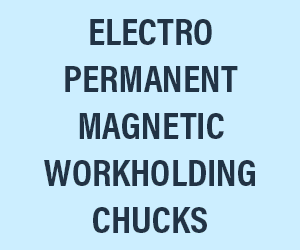What You Must Know About Adaptive Control of Resistance Welding
Brian Moore of Bosch Rexroth explains how adaptive control can help reduce losses related to poorly made resistance welds, increase resistance welding throughput and elevate your control of automated welding processes to a whole new level.
Posted: May 29, 2013
Rather than discovering the impact that these variations have on welding production after dozens or even hundreds of components have been processed, adaptive resistance welding control automatically compensates to keep production and quality up to the levels you need. As gun tips undergo wear, for example, the PSQ 6000 platform compensates for changes in their output, so that the welds remain reliable.
The result is significant reduction in the variability of welds, and a concomitant increase in weld reliability – a fundamental measure of the quality of welding processes, and ultimately the quality of the vehicle being produced.
A system such as the PSQ 6000 also provides an information framework to assure manufacturers that the weld reliability is actually being achieved: since 100 percent of the welds are inspected in real-time, the platform captures a record of each weld, and any variations the controller made to ensure that the weld was within the established parameters. This is a significant improvement, from a process control perspective, from selecting and testing sample components and projecting the weld quality from the results of the sampling.
SAFETY, OPERATIONAL QUALITY
Adaptive resistance welding control provides an important improvement in worker safety and operational quality through the virtual elimination of welding expolsion. Many highly automated resistance welding operations, with multiple robots carrying out hundreds of welds a minute, generate a significant amount of expolsion because they do not have real-time control.
The result is the potential for a constant cascade of hot, dangerous sparks that can impact worker safety, leading to increased healthcare costs, lost worker productivity and the need for enclosures and other expensive protective devices and procedures.
Adaptive resistance welding control modulates the current flow to the welding tools to such a precise extent that expolsion becomes practically non-existent. Instead of delivering a constant flow of power to the guns, which in certain instances and with certain materials is in excess of what is needed to complete the weld, the real-time feedback of conditions on the component’s surface enables the PSQ 6000 controller to adjust the power flow to just the right level to complete the weld without generating expolsion.
Not only does this increase worker safety, it reduces the dirt and contamination associated with constant expolsions in the welding workspace. Reducing particulates on the production line floor means a cleaner environment, with less need for maintenance; it also eliminates contaminants that can interfere with sensitive electronic connections, sensors and other production line equipment.
Some studies have also shown that it is possible to reduce overall energy consumption by welding tools through adaptive control, since only the amount of energy needed to complete the weld is being delivered to the tool.
COST SAVINGS
The true value of any technology to improve automation is measured in how it can ultimately help a manufacturer generate savings through improved productivity and/or elimination or reduction of manufacturing costs. Adaptive resistance welding control offers multiple pathways to improving the total cost of ownership of welding systems:
• Major reductions in testing costs – including labor, time for testing, documentation, cost per part tested and scrapped and testing materials
• Elimination of weld quality spills and quarantine requirements
• Increased weld reliability leads to reduction in costs associated with poor part quality (rework of components, recalls, rebates, legal liability, etc.)
• Increased throughput from 100 percent weld inspection – translates into lower cost per part with higher levels of production
• Reduction in expolsion-related costs – better worker safety, cleaner workspace with less contaminants and better quality welds
While there are costs associated with adding adaptive control to resistance welding platforms, we have developed a model for broadly comparing costs of a platform that used manual destructive testing versus use of adaptive welding control.
On a theoretical resistance welding platform of 14 robots welding 150 spots per part, generating approximately 800 parts per day in three shifts, the return on investment was significant. Even after factoring in the cost of the PSQ 6000 components and programming, a manufacturer could expect to reduce the cost of testing and quality control for resistance welding by more than 30 percent over six years, through reductions in labor costs, materials costs, scrapped test materials costs and time.
This savings does not include any savings associated with improved parts quality – and with adaptive control, 100 percent of parts welded are tested and the quality of the welds documented.
MAXIMIZE VALUE OF RESISTANCE WELDING
This Adaptive Resistance Welding solution is designed for today’s world-class automotive manufacturers, those that are committed to investing in cutting edge automation technology that adds value to their vehicles by improving product quality, increasing productivity and enabling a sustained return on investment.
This platform includes the PSQ 6000 Adaptive Feedback control platform, a range of powerful authoring and analysis software tools and a complete family of controllers, transformers and other system components – a comprehensive solution that has been engineered for efficient integration and retrofitting into existing resistance welding platforms.
Adaptive control of resistance welding can transform the contribution your resistance welding system makes to your automotive manufacturing operations, helping reduce losses related to poorly made welds, increase welding throughput and elevate your control of automated welding processes to a whole new level.















